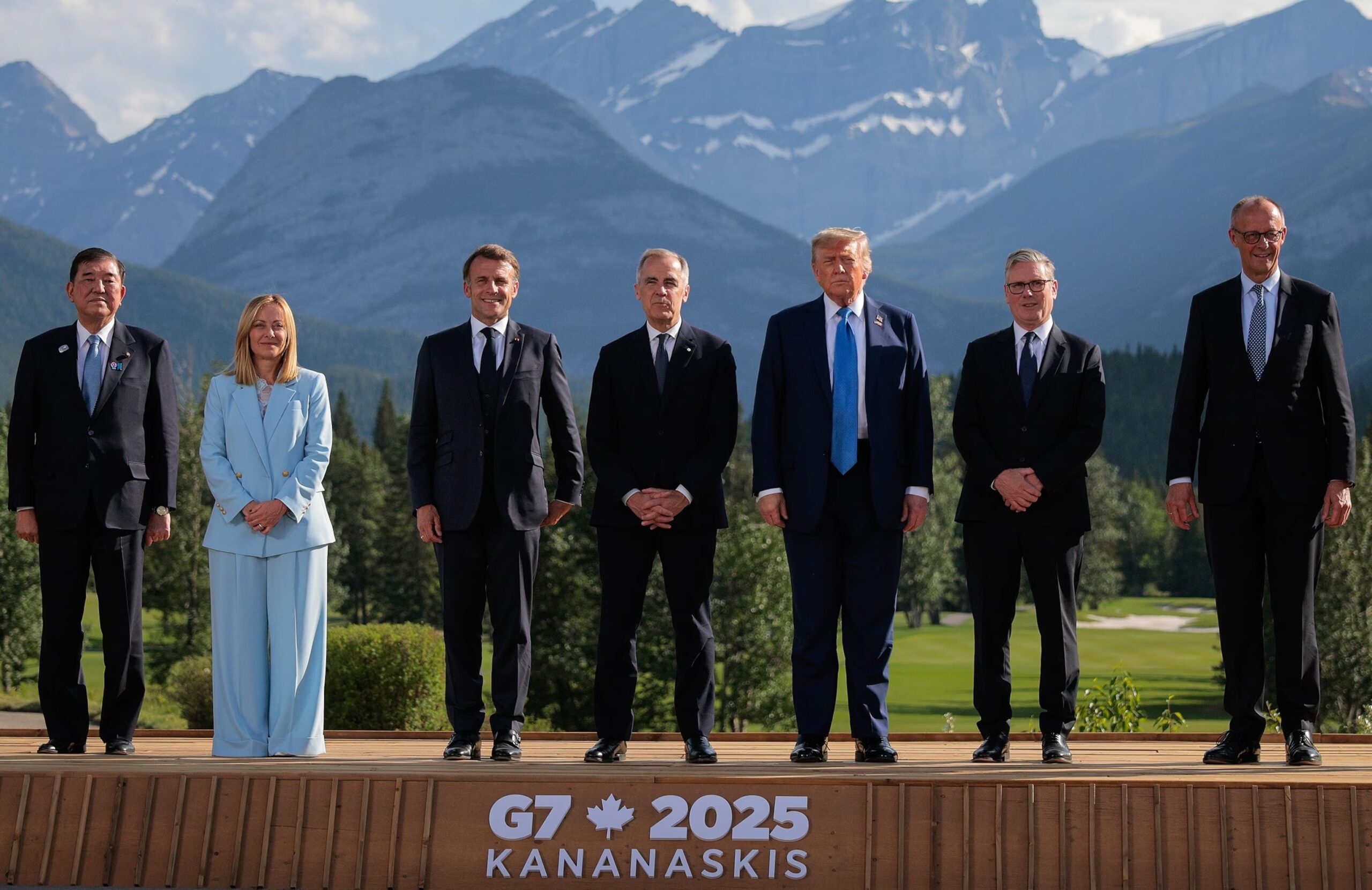
G7 Leaders Demand Middle East De-escalation as Trump Shortens Summit Due to Iran-Israel Conflict
Trump departed the conference early, and G7 leaders have urged for a de-escalation of Middle East conflicts.
The G7 leaders have emphasized their commitment to peace and stability in the unstable region by calling for a “de-escalation of hostilities in the Middle East, including a ceasefire in Gaza.” In the face of continuing hostilities with Iran, they reiterated Israel’s right to self-defense.
With “obvious reasons” relating to the growing Israeli-Iranian tension, US President Donald Trump abruptly left the G7 summit in Canada early. His early departure heightened fears of a wider regional war as the two countries launched attacks for the fifth day in a row.
According to reports, Trump told the White House National Security Council to meet when he got back to Washington. Although American officials denied rumors that the US would support any Israeli operation against Iran, US Defense Secretary Pete Hegseth announced the deployment of more military forces to the Middle East to strengthen the Pentagon’s defensive posture.
By emphasizing successes like the US-UK trade agreement, the White House attempted to portray Trump’s departure as a component of a successful summit. After Monday night’s dinner, press secretary Karoline Leavitt said Trump left because of “what’s going on in the Middle East,” but she didn’t elaborate.
Trump skipped scheduled talks with Mexican President Claudia Sheinbaum and Ukrainian President Volodymyr Zelensky on the last day of the summit because of his early departure.
Trump earlier reaffirmed his position that “IRAN CAN NOT HAVE A NUCLEAR WEAPON” and criticized Iran for turning down a nuclear agreement he had offered during recent negotiations. He did not provide further details, but he asked Iranians to “immediately evacuate” Tehran.
Iranian media soon reported heavy air defense fire over Tehran and explosions. Israeli airstrikes against Iranian websites, including the state broadcaster, also persisted. Israel was attacked by Iranian rockets, which set off air raid sirens in Tel Aviv and sparked more riots.
Leaders from around the world said they understood Trump’s decision to leave. “It’s a very good thing if the United States can achieve a ceasefire,” stated French President Emmanuel Macron. Despite a scheduled meeting with Trump on tariffs, the office of Australian Prime Minister Anthony Albanese called the action “understandable.”
Wider geopolitical divisions, such as disputes over Russia’s role in Ukraine and the Iran-Israel conflict, were mirrored in the tensions at the G7 conference. Trump ultimately consented to a unified declaration supporting Israel’s security and criticizing Iran as the primary cause of regional instability and terrorism, despite his stated intention to oppose a summit statement on the conflict.
A strong position that Iran must never obtain nuclear weapons was reiterated in the declaration.
Separately, Trump referred to Russia’s 2014 removal from the former G8 after the invasion of Crimea as a “big mistake” and stated, “Putin speaks to me.” He doesn’t talk to anyone else because he doesn’t like it.
Progress was made during the summit when Trump signed a trade agreement with the UK to eliminate some import levies, claiming he did so because “I like them.” A similar agreement with Canada might be finalized in 30 days, according to Canadian Prime Minister Mark Carney.
Trump has already left the 2018 G7 meeting in Quebec to meet with North Korean leader Kim Jong Un, making this his second early departure from a G7 summit.
Israel claims control of Iranian airspace since it began its air campaign last Thursday, focusing on nuclear experts and senior military leaders. However, military analysts claim that since only the US possesses aircraft that can hit heavily protected locations like Fordow, Israel has not yet seriously disrupted Iran’s nuclear development.
Israeli strikes have killed at least 224 people, according to Iranian health officials, while Israel’s government claims at least 24 Israeli fatalities.
Global leaders are keeping a careful eye on the situation as demands for peace grow, and the tense confrontation continues to cloud international diplomacy.
All Categories
Tags
+13162306000
zoneyetu@yahoo.com


